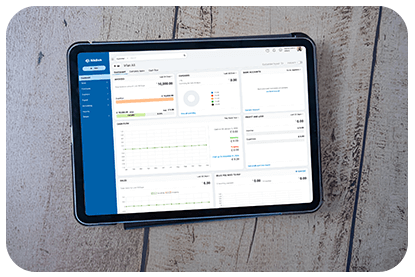19 April 2024
Small Business Bookkeeping: Must-Know Tips for Success
Running a small business is no small feat. Between juggling clients, managing inventory, and keeping the lights on, small business bookkeeping often feels like that chore you keep pushing to the bottom of your to-do list. But here’s the thing: solid bookkeeping isn’t just about staying organized it’s about setting your business up to thrive.
Good financial habits can save you from costly mistakes, keep the tax man happy, and give you a clear picture of where your money’s going. So, let’s dive into some must-know tips to make best small business bookkeeping less of a headache and more of a superpower for your small business.
1.Keep Your Personal and Business Finances Separate
I get it when you’re just starting out, it’s tempting to pay for a business expense with your personal debit card or toss a client’s check into your everyday account. But trust me, this is a habit worth breaking fast. Open a dedicated business bank account and get a separate credit card for work stuff. It’s not just about looking professional (though that’s a perk). It makes tracking income and expenses way easier, keeps your personal assets safer if things go south, and turns tax season from a chaotic scavenger hunt into a manageable task.
2. Pick an Accounting Method That Works for You
Cash or accrual sounds like accounting jargon, right? Don’t worry, it’s simpler than it seems. With cash accounting, you record money when it actually hits your account or leaves your wallet. It’s straightforward and perfect if you’re a freelancer or a small shop. Accrual accounting, on the other hand, logs revenue and expenses when they’re earned or billed, even if the cash hasn’t moved yet great if you deal with invoices or inventory. Choose the one that fits your business vibe and stick with it. Consistency is key.
3. Get Friendly with Bookkeeping Software
Embrace bookkeeping software to simplify your finances. Track expenses, generate invoices, and manage payroll with ease. User-friendly interfaces save time, reduce errors, and keep your records organized. Whether you’re a small business or freelancer, get friendly with tools like QuickBooks or Xero, QuickZeros for stress-free financial management.
4. Track Every Single Expense
That $5 latte you grabbed on the way to a client meeting? The $20 you spent on printer ink? Track it. Every little expense counts, especially when it comes to tax deductions. I used to let receipts pile up in my car until they turned into a faded mess don’t be me. Use an app like Expensify or Wave to snap a pic of your receipts right away and sort them into categories. It takes 30 seconds and keeps your books clean and your deductions maxed out.
5. Reconcile Your Accounts Like Clockwork
This one’s a biggie. Reconciling just means checking that your books match your bank statements. It’s like proofreading your finances to catch typos those little slip-ups like double entries or forgotten transactions. Set aside time weekly or monthly (depending on your volume) to do this. Software can help, but even if you’re old-school, a quick scan of your statements keeps everything in line and prevents surprises down the road.
Read More About: Is Bookkeeping Different from Accounting?
Final Thoughts
Bookkeeping doesn’t have to be the villain in your small business story. With a few smart habits like keeping things separate, picking the right tools, and staying on top of the details you can turn it into a quiet hero that keeps your business humming along. Start small, stay consistent, and don’t be afraid to ask for help if you need it (a good accountant is worth their weight in gold). Your future self and your bottom line will thank you.




